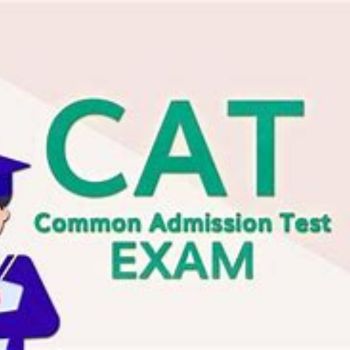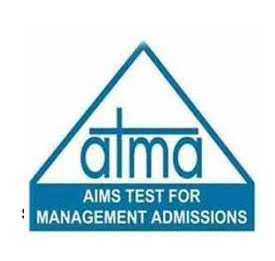Ph.D. in English or Doctor of Philosophy in English is a research program in English literature that involves studying review of literature, data collection, analysis, and thesis writing and submission. A PhD generally lasts for 3 to 6 years. The initial years focus on literature survey and coursework completion, while the rest of the period is dedicated to data collection, analysis, and publication.
To pursue a Ph.D. in English, a student needs to complete PG education in English as a major subject. The admission to this course is based upon entrance exams as well as the merit of the candidate.
Some of the best colleges in India are Indian Institute of Technology (IIT) Kanpur , Loyola College, Presidency College, Kalinga Institute of Industrial Technology (KIIT), Chandigarh University, Lovely Professional University (LPU), Indian Institute of Technology (IIT) Bhubaneswar, Christ University, Presidency University, and others. The average course fee ranges between INR 30,000-6,00,000.
The Ph.D. in English course is best for candidates looking to pursue their career as a Teaching Assistant or Assistant Professor. Career promotion will lead to positions like Senior Professor, Head of the Department, Advisor, and Dean.
A few important things to know before pursuing a Ph.D. in English is that the UGC has removed the mandatory paper publication rule for PhD thesis. However, many universities still follow the old guidelines where publication is compulsory. Also, thesis submission is followed by an open defense where the scholar needs to present and defend their research.
- PhD in English Course Highlights
- What is a PhD in English?
- Why Pursue a PhD in English?
- Who should pursue a PhD in English?
- PhD in English Eligibility Criteria
- PhD in English Entrance Exams 2025
- PhD in English Admission Process
- PhD in English Top Colleges
- PhD in English Syllabus
- PhD in English Job Prospects & Scope
- PhD in English vs. PhD in English Literature
- PhD in English FAQs
PhD in English Course Highlights
The table below provides key highlights for Ph.D. in English:
What is a PhD in English?
A PhD in English is a doctorate level program that offers comprehensive, specialized education in the literary, cultural, and linguistic areas, qualifying the student primarily as an academic worker in the field of teaching and research within the university and college system. The program focuses on an intense course study, comprehensive examination, language proficiency, and novel dissertation research that adds a new contribution to the body of knowledge.
English PhD students usually work intensively on literature, literary theory, rhetoric, writing, and culture studies, and cultural studies. The program also develops proficiencies in critical thinking, academic writing, research methodology, and pedagogy. Students frequently pursue careers in academia, though the program also offers access to other vocations that appreciate critical thinking and communication. PhD in English equips the scholars to conduct original research and teaching in higher education along with building experience in England language and literature studies.
Why Pursue a PhD in English?
A Ph.D. in English is the highest degree that can be pursued in the field. It makes the person stand out with maximum qualifications and knowledge. Some of the other basic reasons to pursue a PhD in English are as follows:
- It helps to get high-level positions in academia.
- A candidate with a Ph.D. in English can work in editorial positions, authorship, Copyediting, and higher positions where creativity is involved.
- One can opt for other pedagogical roles such as Educator, Content Manager, Technical Writer, Literary and Motion Picture Critics.
- Thesis writing helps in conducting research, designing surveys or experiments, creative writing, critical thinking, and enhancing problem-solving ability.
- The learning during a PhD improves communication, thought process, concentration, and attention to detail.
Also, read about the Diploma in English
Who should pursue a PhD in English?
A PhD in English is suited for individuals passionate about deep literary and cultural studies who seek to contribute original research and pursue careers primarily in academia or related fields. Some of the best-fit candidates who should pursue a PhD in English are:
- Those dedicated to scholarly research and critical analysis in literature, language, and culture.
- Aspiring university or college professors aiming for academic teaching and research careers.
- Individuals interested in advanced study and specialization in areas like literary theory, rhetoric, writing studies, or cultural studies.
- People seeking to develop strong skills in academic writing, research methodologies, and critical thinking.
- Those wanting to engage in interdisciplinary or specialized fields such as digital humanities or composition studies.
- Professionals aiming to work in research institutions, publishing, or other fields valuing deep analytical and communication skills.
PhD in English Eligibility Criteria
The eligibility criteria for enrolling in a Ph.D. in English course are as follows:
- A Master’s degree in English or a related field (some universities may also accept outstanding candidates with only a Bachelor’s degree).
- A minimum of 55% marks in the PG degree from a recognized university.
- Students who are in their final year of examinations for a PG degree are eligible to apply for the Ph.D. in English.
- Candidates must qualify for the entrance exam accepted by the specific institute/university.
- Some universities may require work experience to apply for PhD courses.
PhD in English Entrance Exams 2025
Ph.D. in English entrance exams are conducted every year by various universities and the UGC. Some of the common entrance exams for doing a Ph.D. in English are given below along with the registration date, exam date, and application fee.
PhD in English Admission Process
The Ph.D. in English admission process may vary from institution to institution, depending on the eligibility criteria. For reference, the admission process for enrolling in the Ph.D. in English at Lovely Professional University (LPU) is given below:
Step 1: Register onto LPUADMIT with basic details (Name, Email ID, Mobile No., State, Gender, and Password). Your email ID will act as your username for the portal and your password will be set by you while registering on the portal. You will get an email on your registered email id regarding this. Login to the LPUADMIT with an already created username/ password.
Step 2: Register for the LPUNEST exam by filling out the application form and paying the registration fee. Book the slot (preferred date, time, and venue) to appear in the test. The exam will be conducted only at dedicated Test Centres. Appear in the exam on the selected date and qualify for the exam.
Step 3: After qualifying the test, schedule and book the slot for the Interview that will be displayed on the result page. Appear for the interview and wait for the result of the interview.
Step 4: After qualifying for the Interview, deposit the documents and take Admission.
Documents Required:
- Mark sheets and passing certificates of Class 10, Class 12, and undergraduate degree
- Master's degree mark sheet and qualifying exam certificate
- Proof of address
- Recent passport-sized photograph
- Research proposal relevant to the PhD topic
- Letters of Recommendation
- Statement of Purpose
PhD in English Top Colleges
A PhD in English can be pursued from a government or private university, based on the availability of resources and a well-known supervisor. The table below lists top colleges in India for a Ph.D. in English.
Click to read more about PhD in Arts
PhD in English Syllabus
Ph.D. in English is based on research and development of English literature. Therefore, the course has no defined syllabus, and the study depends on the individual's topic of research in the domain. However, there is certain coursework that needs to be carried out during the PhD. The table below represents the syllabus for the PhD in English. This table covers the core subjects which are covered during the Ph.D. in English course:
Also read about PhD in Philosophy
PhD in English Job Prospects & Scope
Schools, colleges, and publication houses are the first areas of importance where Ph.D. in English degree holders can apply for jobs.
In the table below, some of the well-paying jobs are described based on the current salary scale given on various job portals like Indeed, UGC pay scale, Naukri.com, etc.
PhD in English vs. PhD in English Literature
The comparison between PhD in English and PhD in English Literature are given below:
PhD in English FAQs
How competitive is the PhD English admission process?
It is very competitive and hundreds of applicants battle over the few openings every year. Selection panels evaluate originality and depth of your research proposal, strength of writing samples, and academic records. A significant factor is also alignment with areas of faculty research. Application shortlisting is selective; the most qualified candidates are invited.
Am I required to possess a Master degree before I can apply to a PhD in English?
The majority of universities in India do require a Master in English or a related subject at 55% or higher, although a few permit direct entry with a BA with an integrated MA-PhD path. Having an MA also assists in demonstrating your readiness to work at the research level. Admission, however, is based on overall academic strength, research potential and performance in the entrance exams.
Can I do a part-time PhD in English?
It is usually good to be a full-time student as various responsibilities of coursework, research, and teaching can be quite demanding. Part-time PhDs are uncommon and typically only acceptable by those who work within an academic or related field. These applicants might possess less strict deadlines but have to achieve strict academic standards. It is advisable to refer to the policy of a particular university.
What type of assistance is given to PhD English students?
Research funding, stipends or assistantships, mentorship programs, university libraries and online resources are often made available by universities. Publishing, academic writing, and career skills workshops are common. Most also provide wellness support and conference travel grants to assist students in their professional and academic development.
What is the duration of PhD in English?
The average time is between 5 and 7 years, but others take more or less time based on the complexity of the research being done. The schedule comprises course work, qualifying exams, research proposal acceptance, dissertation writing, and thesis defense. Delays may arise as a result of fieldwork, data collection, or individual situations. Many universities may set a time limit on what is considered the maximum completion time.
Would I be able to apply for a PhD in English, despite not being an English literature major?
Yes, applications are welcome in areas such as journalism, creative writing, or cultural studies, although applicants should demonstrate a good background in literary theory and research methods. Well-developed writing samples and a persuasively written research proposal are vital. Intermediate courses or additional reading may be recommended prior to commencing full-time research.











